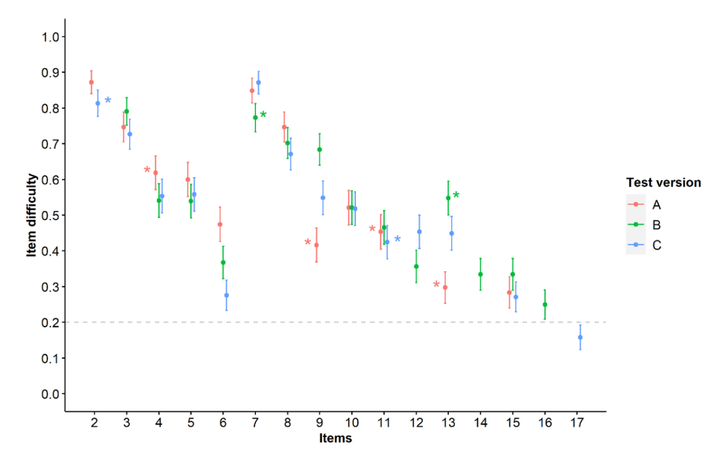Latin Square Tasks ":" A Multi-Study Evaluation
 Image credit:
Unsplash
Image credit:
Unsplash
Abstract
The Latin Square Task (LST) was proposed as a theoretically well-grounded paradigm for measuring fluid intelligence. In four studies (total N = 3,439) we systematically investigated the psychometric properties of LSTs. Results provided evidence that (a) the construct is unidimensional, (b) the administered stimulus types and the rotation of the item matrix only played a minor role, and (c) the relations with other measures of reasoning ability were in the expected range (about r = .50), confirming the validity of LSTs. For unsupervised automated test construction, item difficulty was only insufficiently accounted for by relational complexity and the number of steps that need to be memorized for solving an item. We discuss possible remedies for improving the paradigm including its generalizability. Furthermore, we propose that the binding-hypothesis of working memory is theoretically suited to account for item difficulties in LSTs.